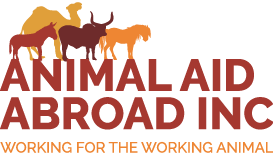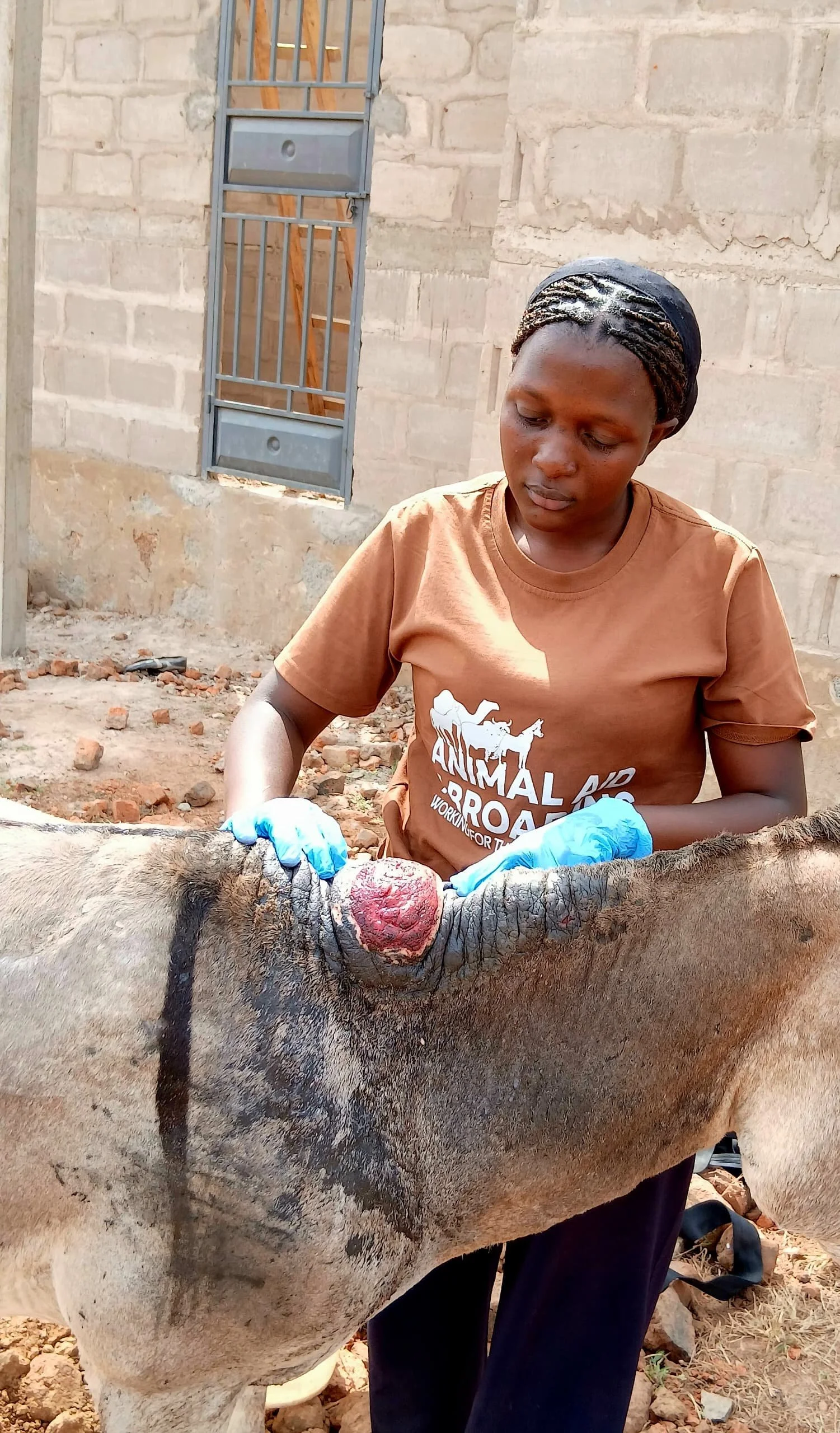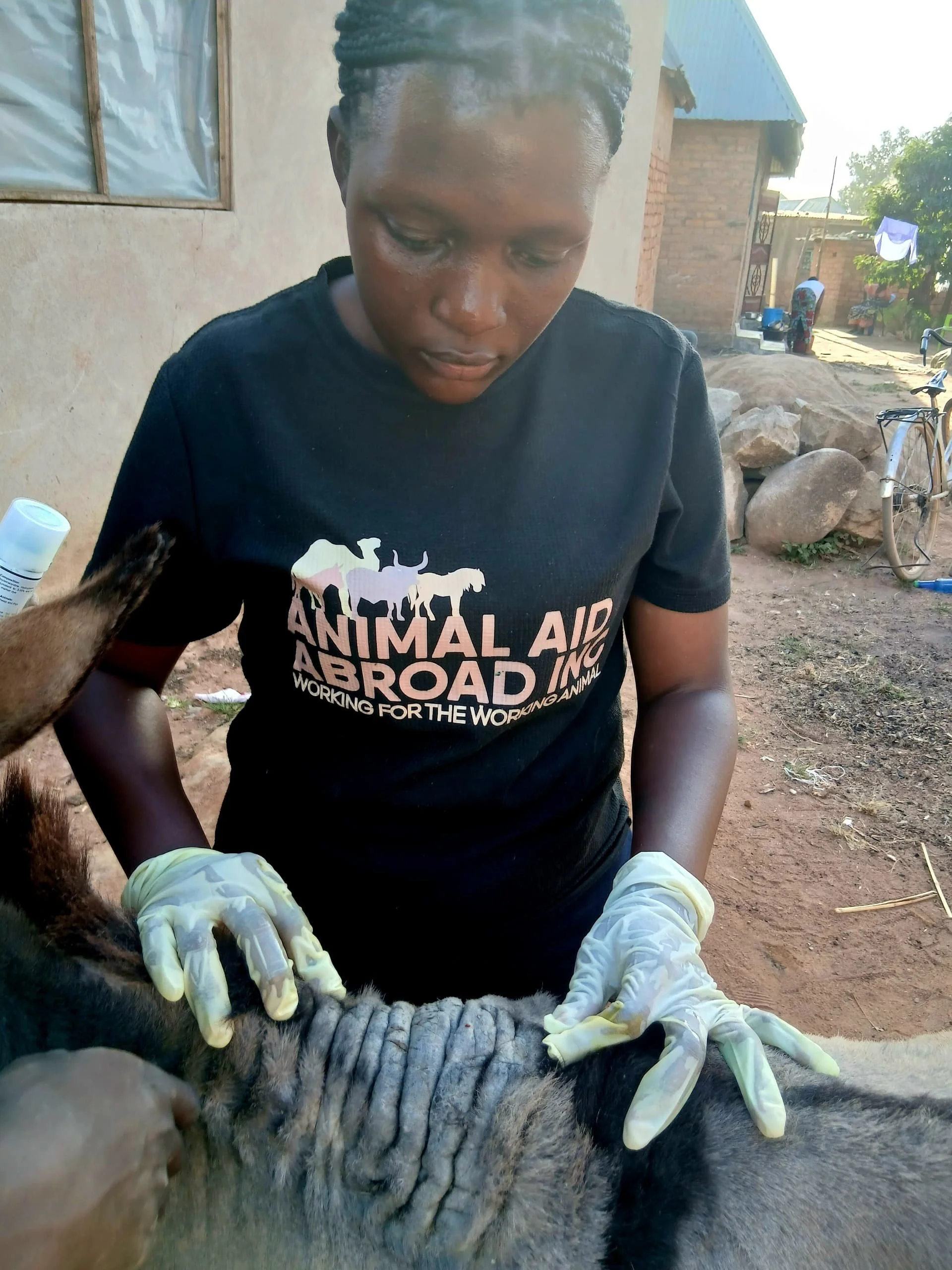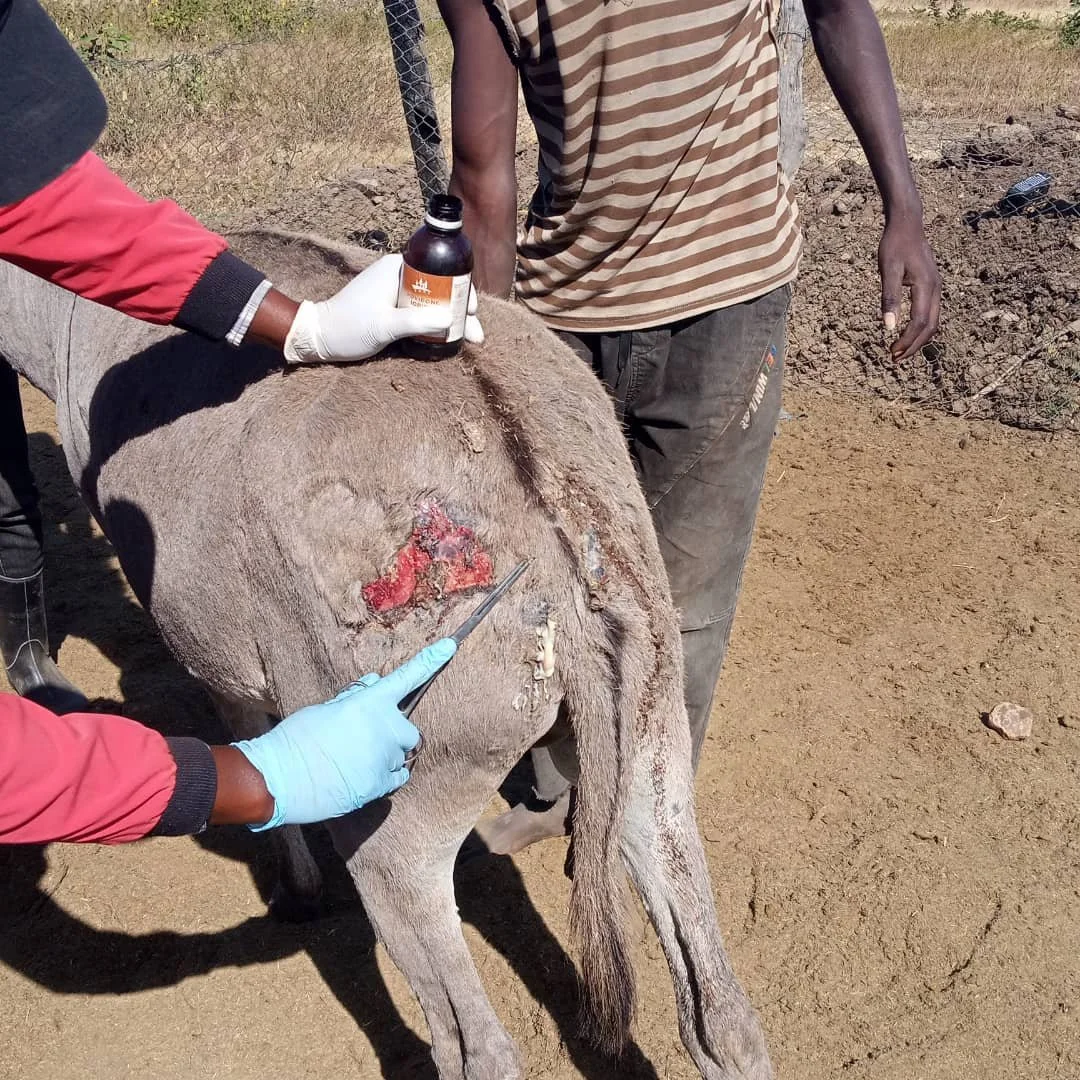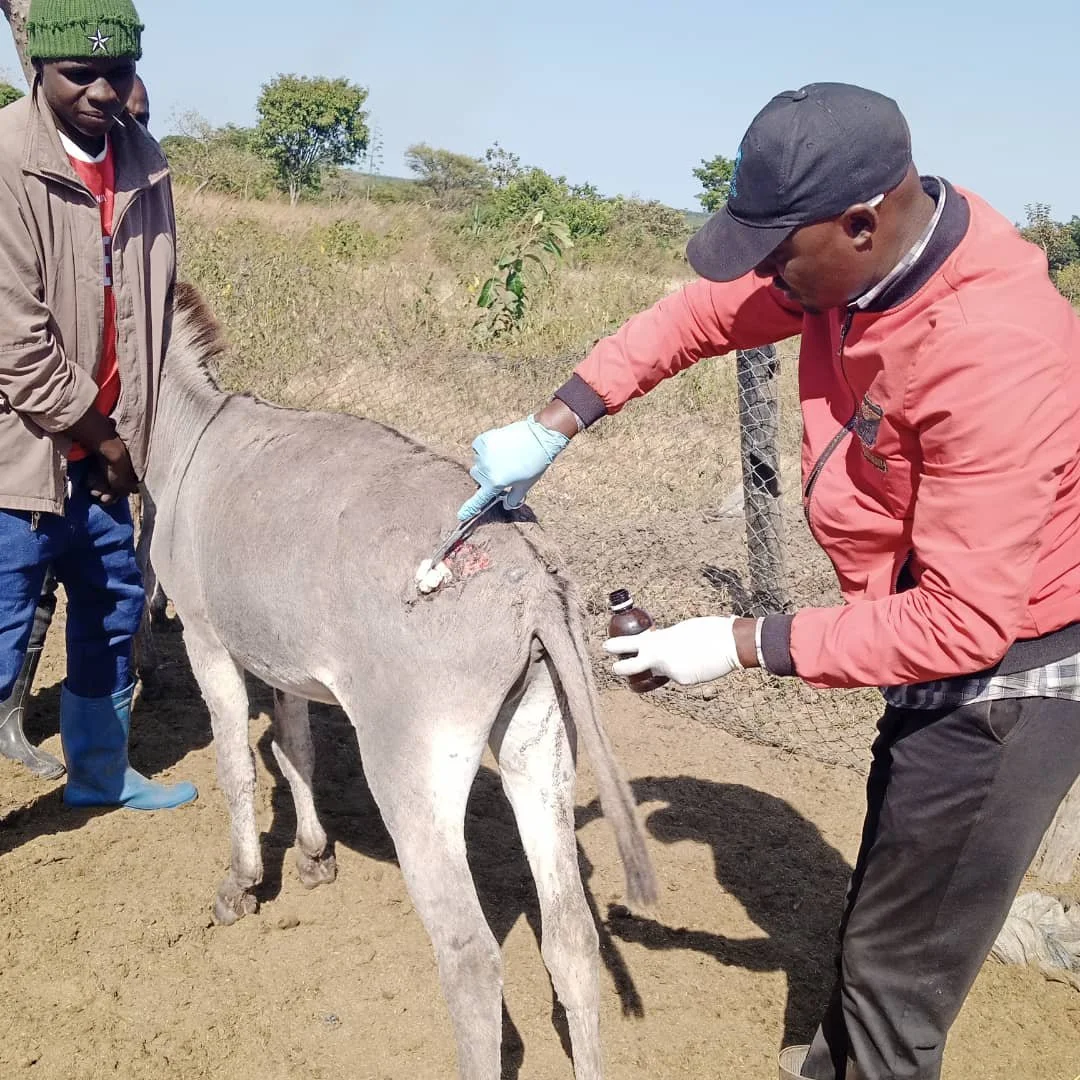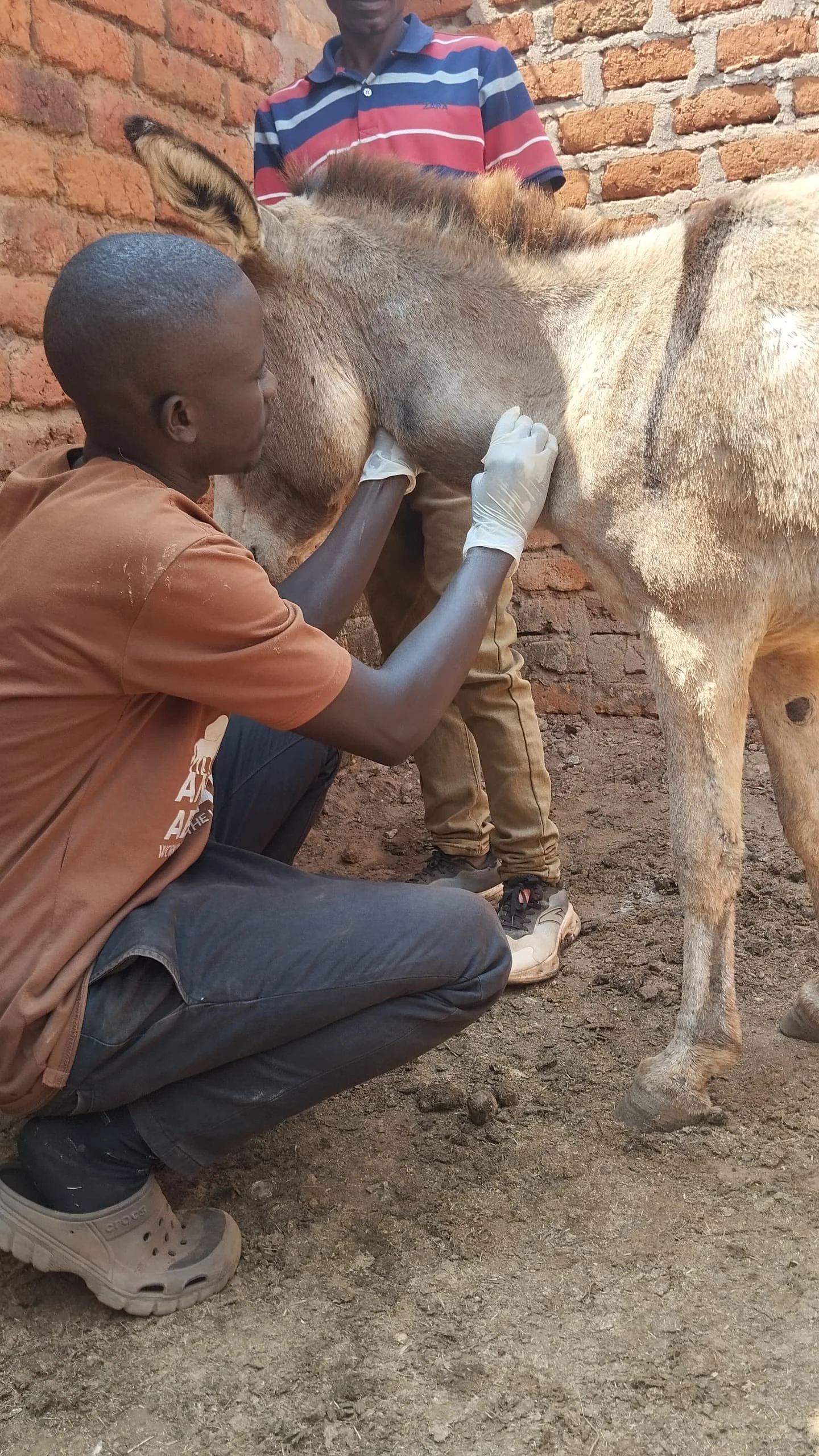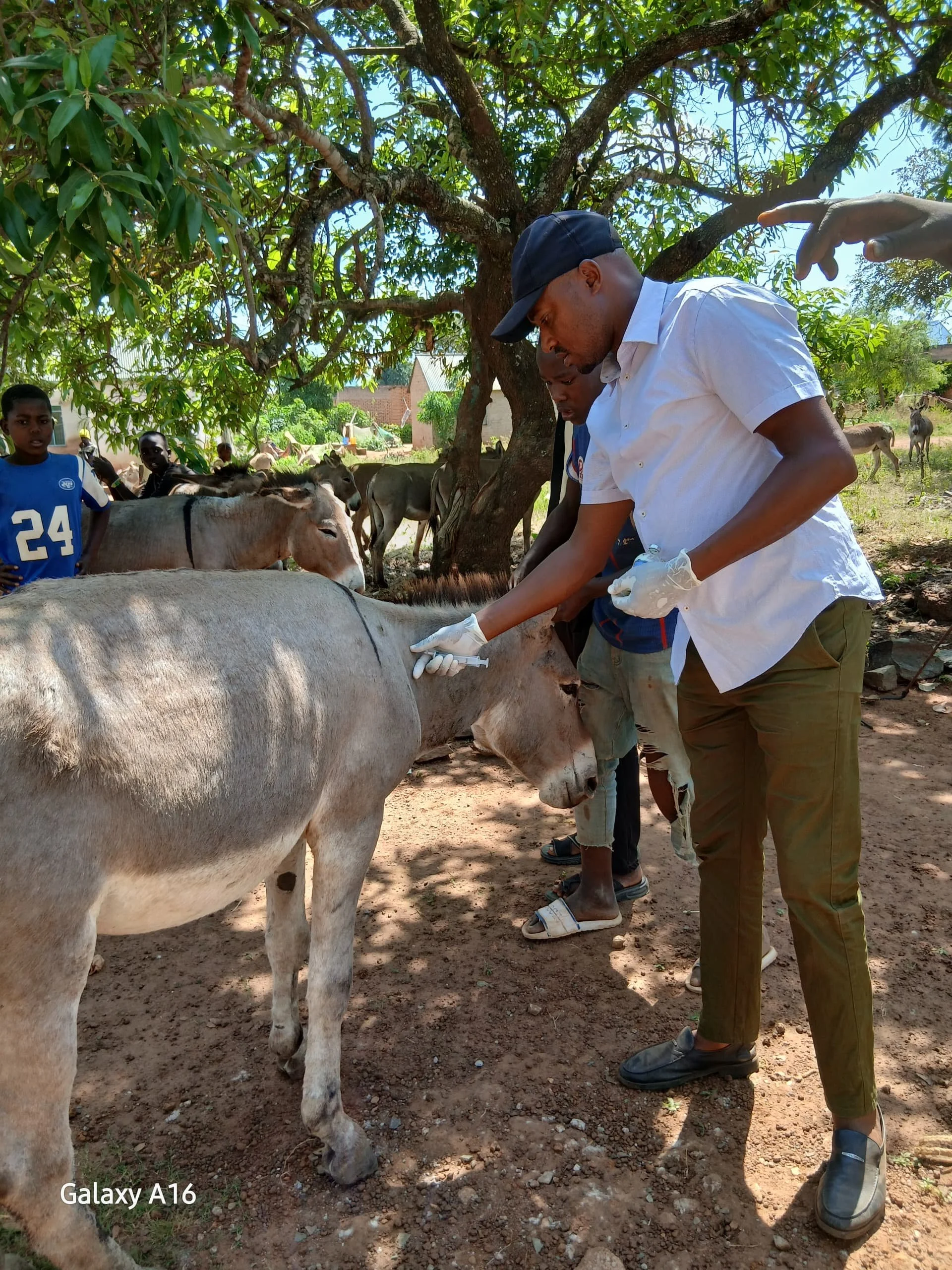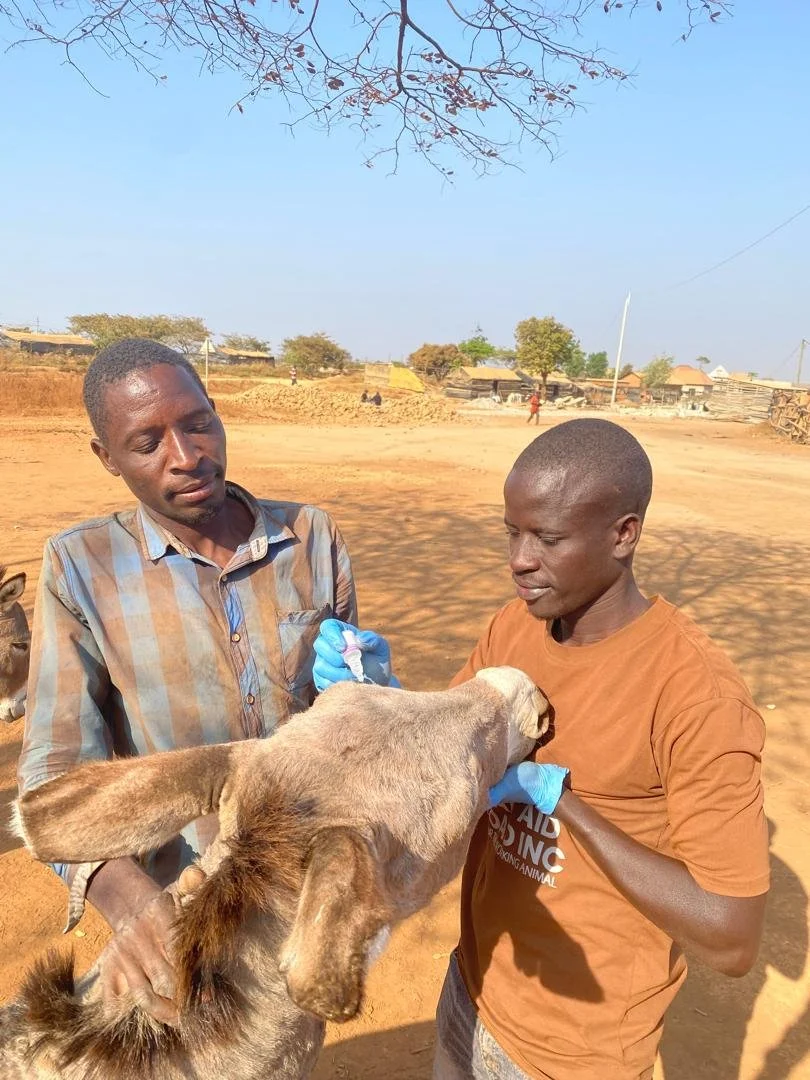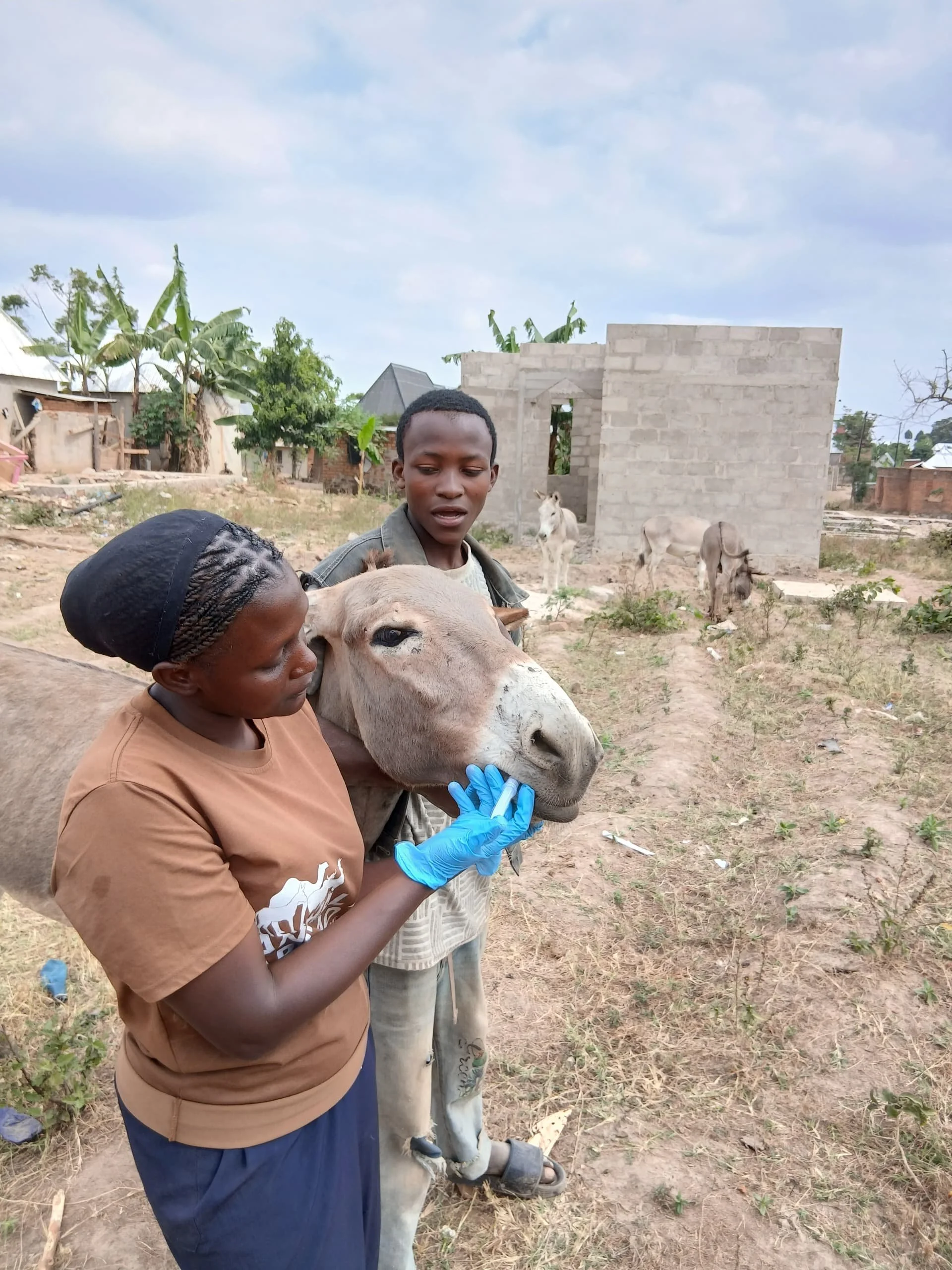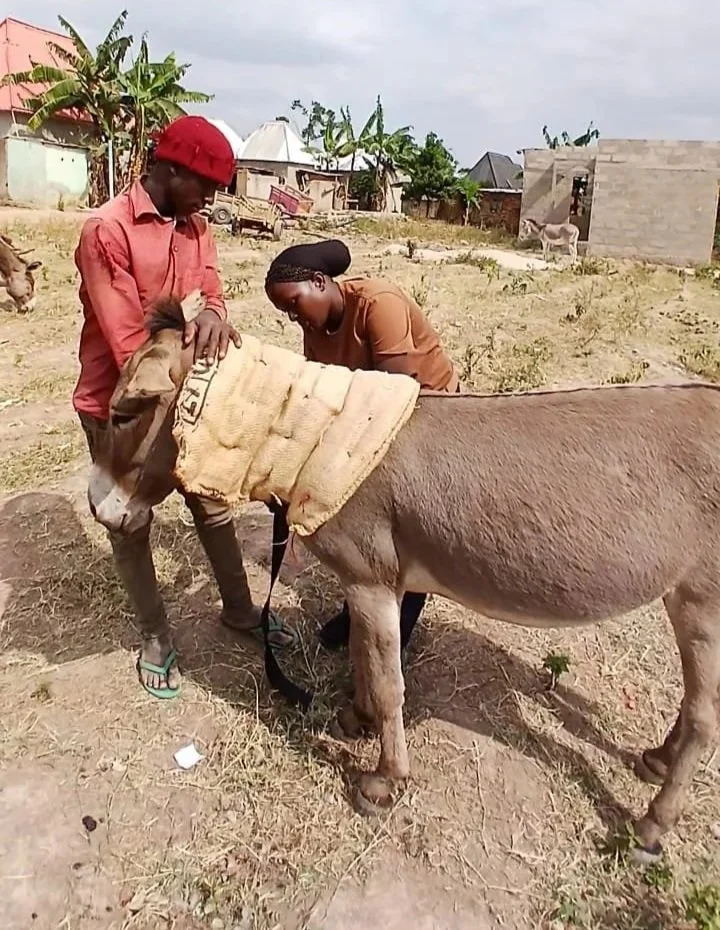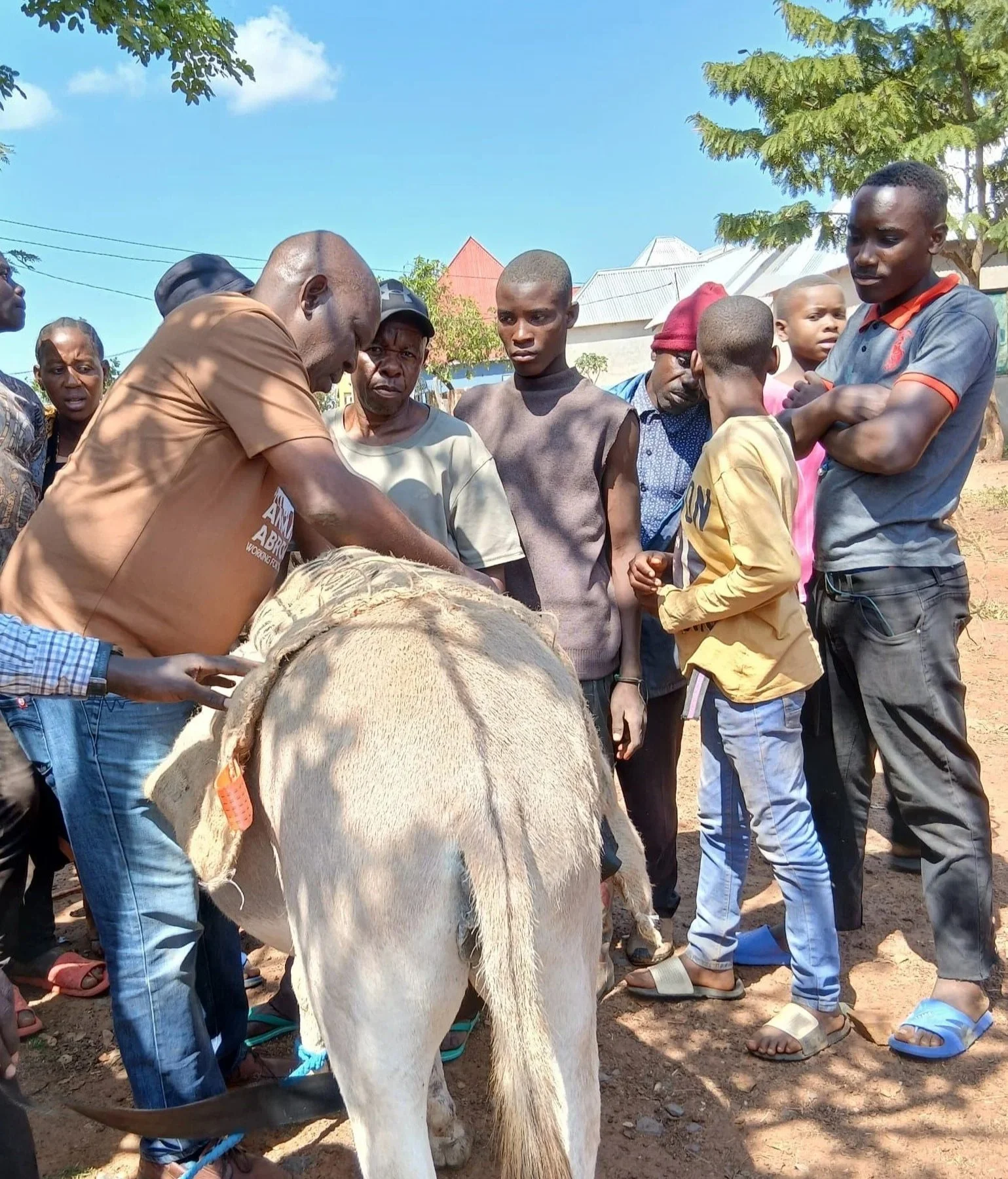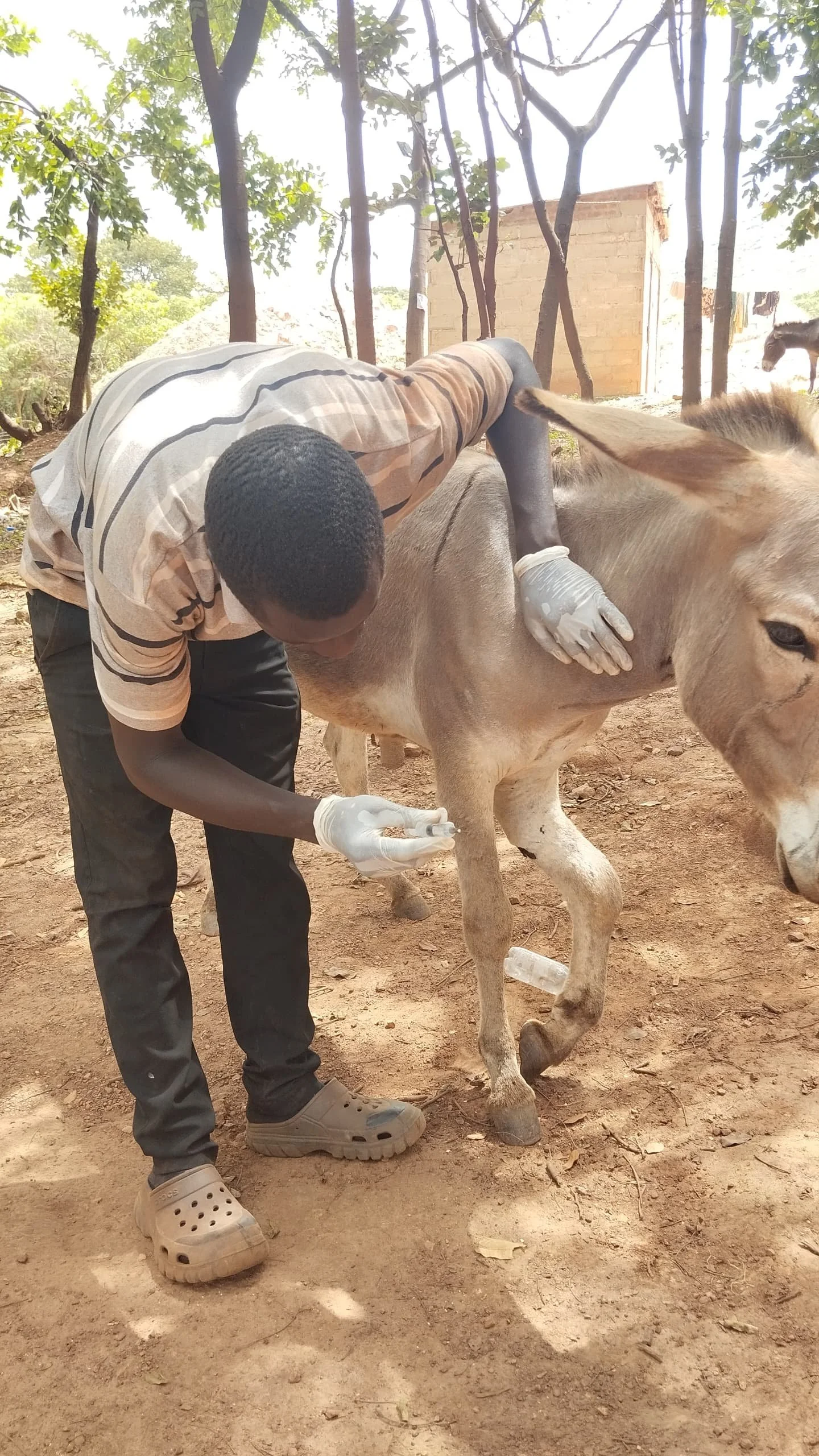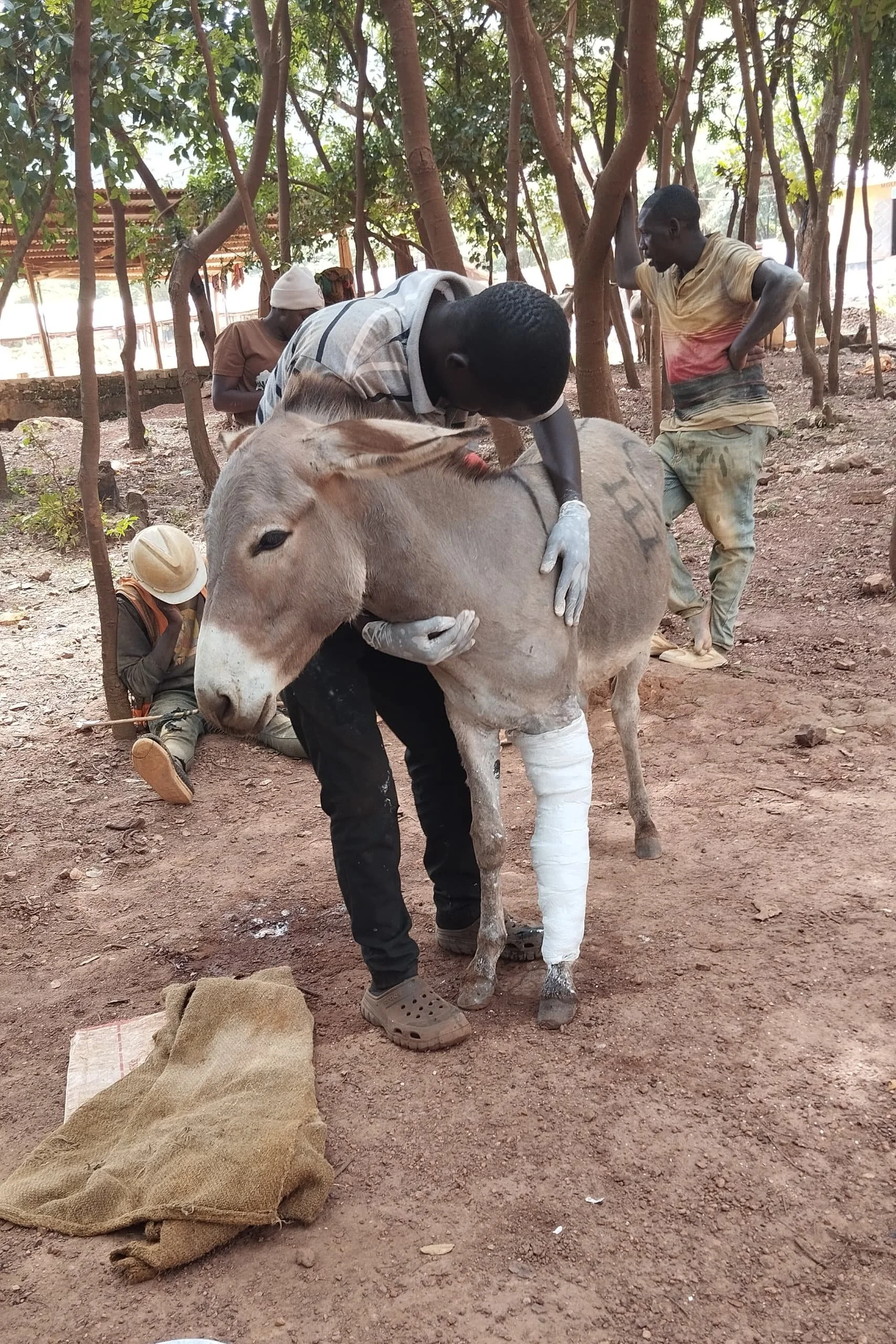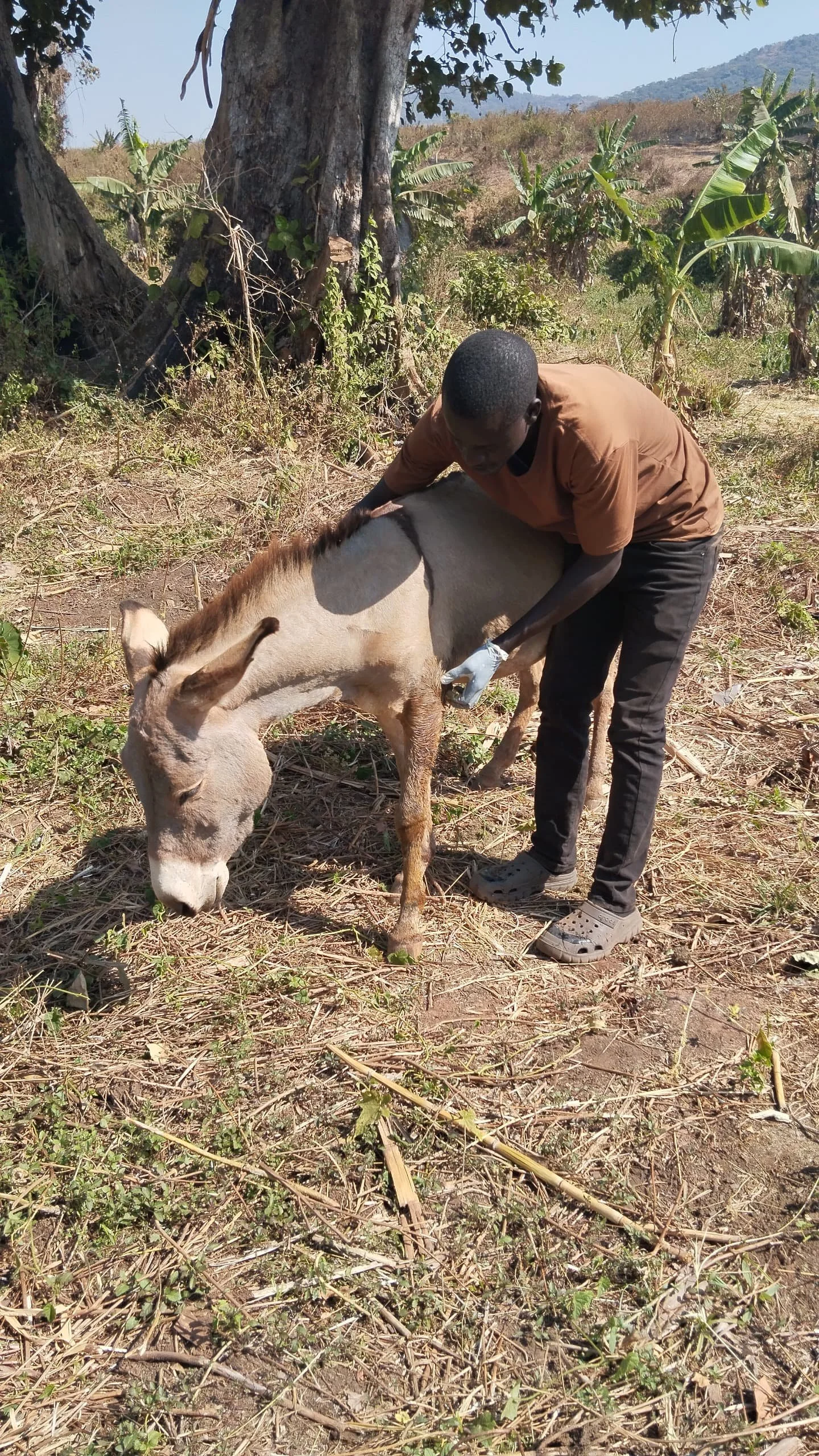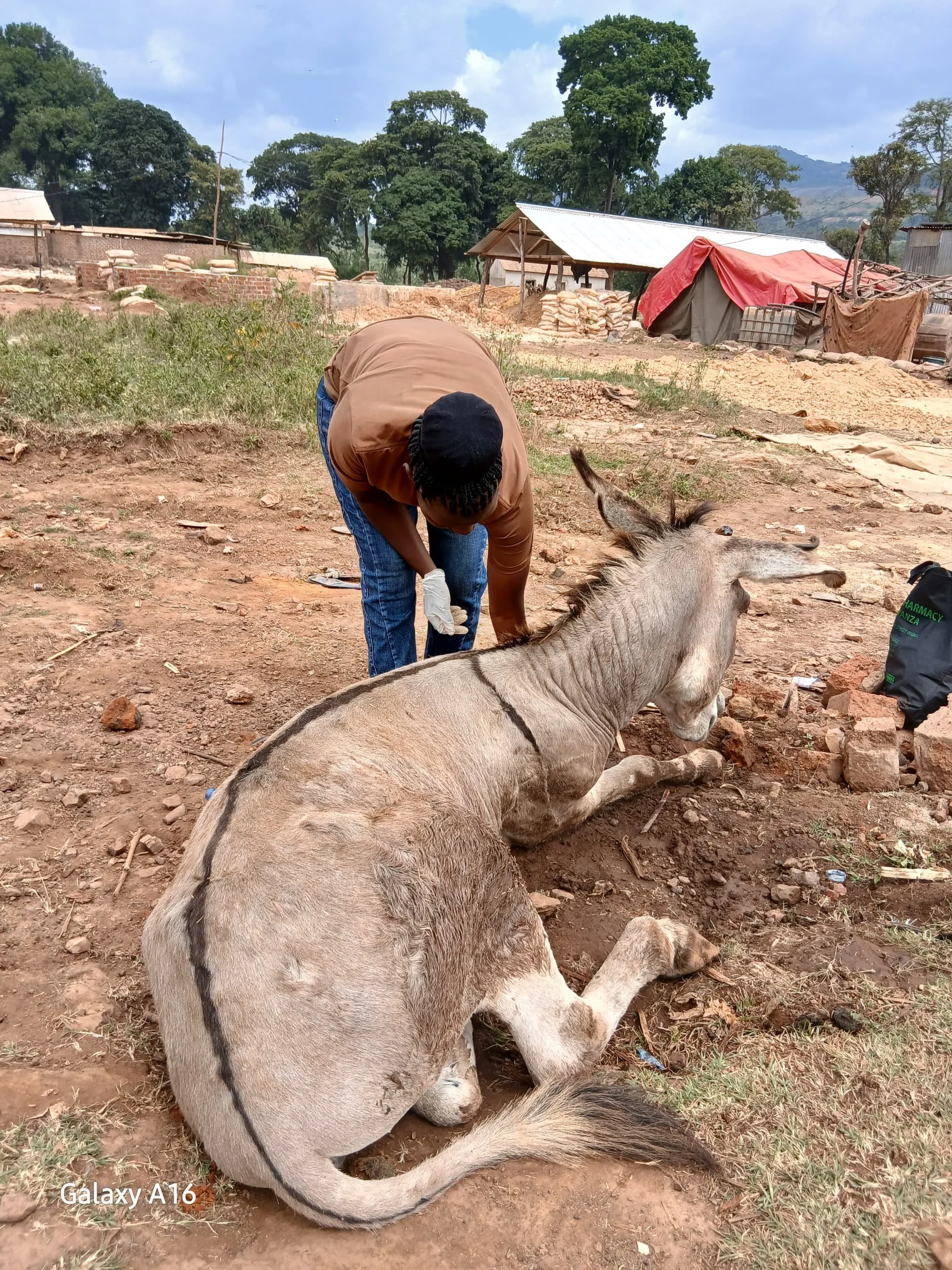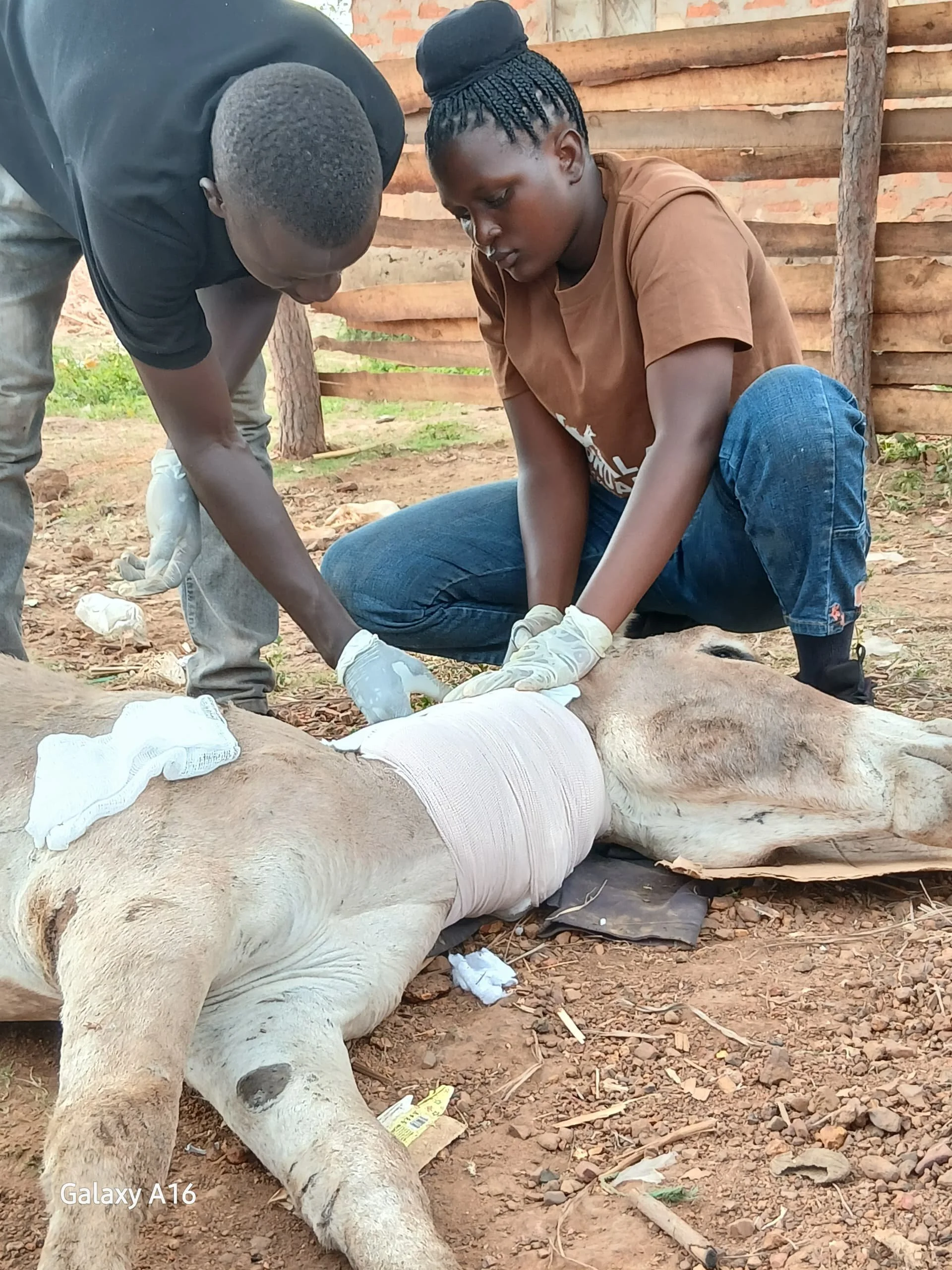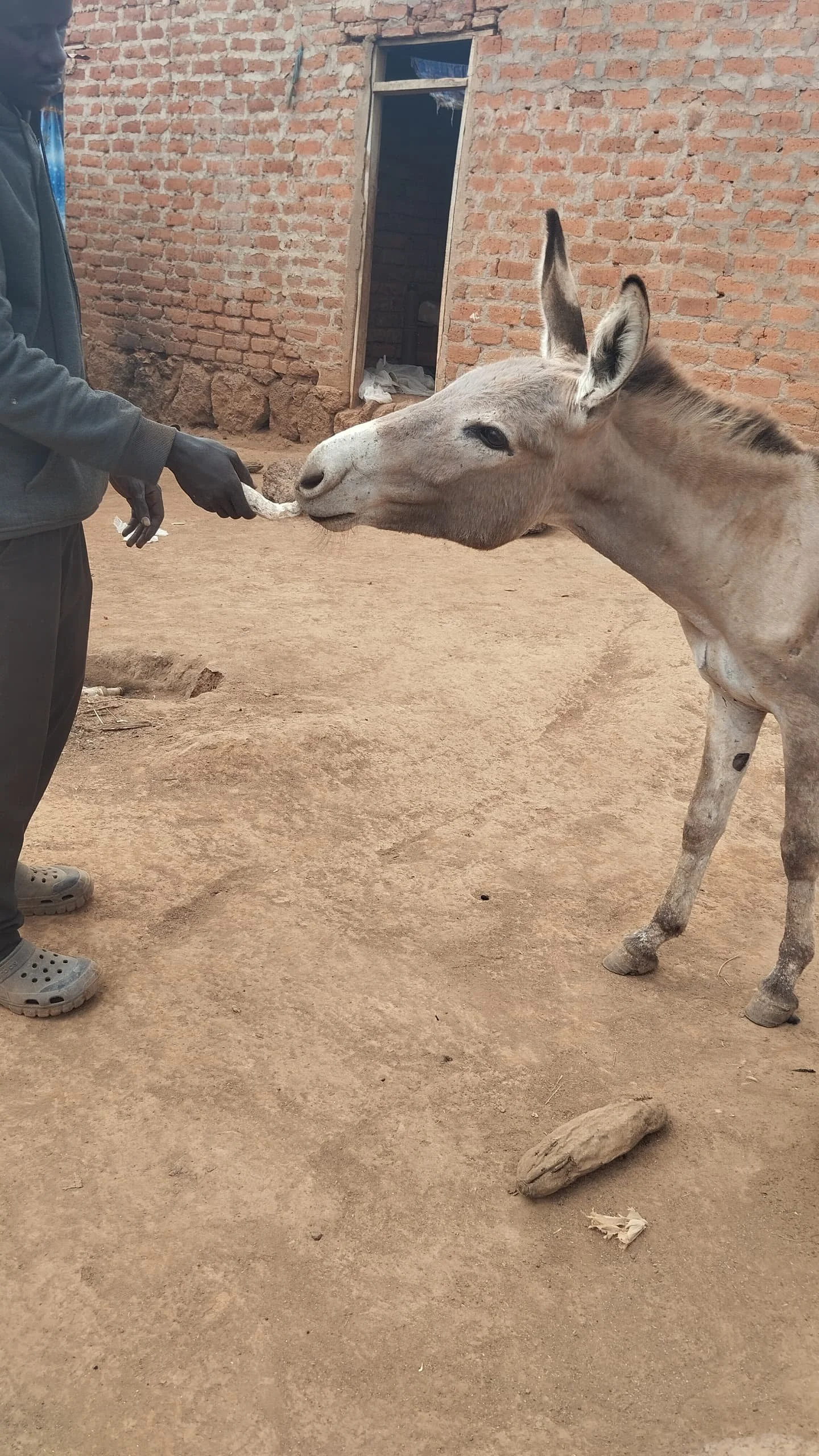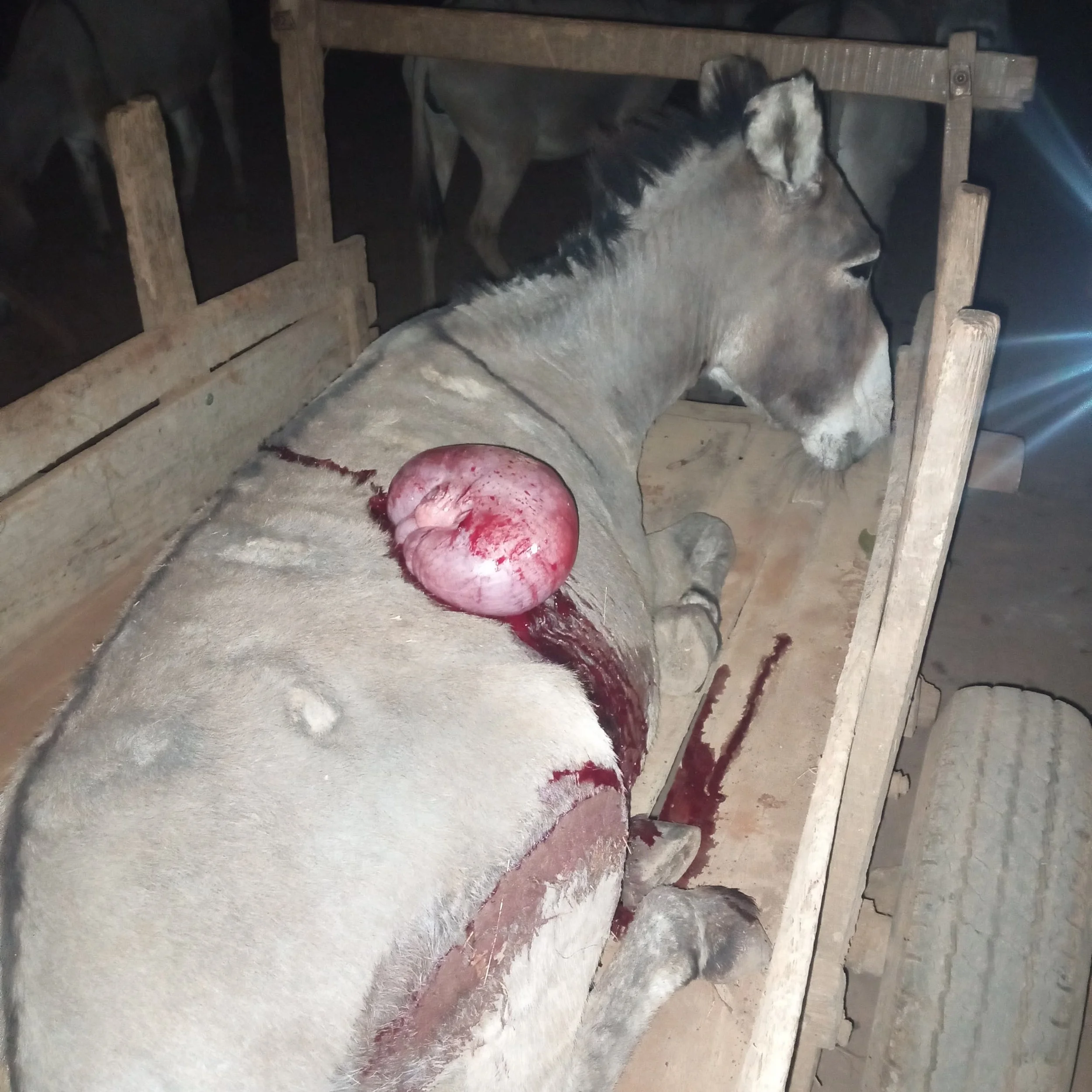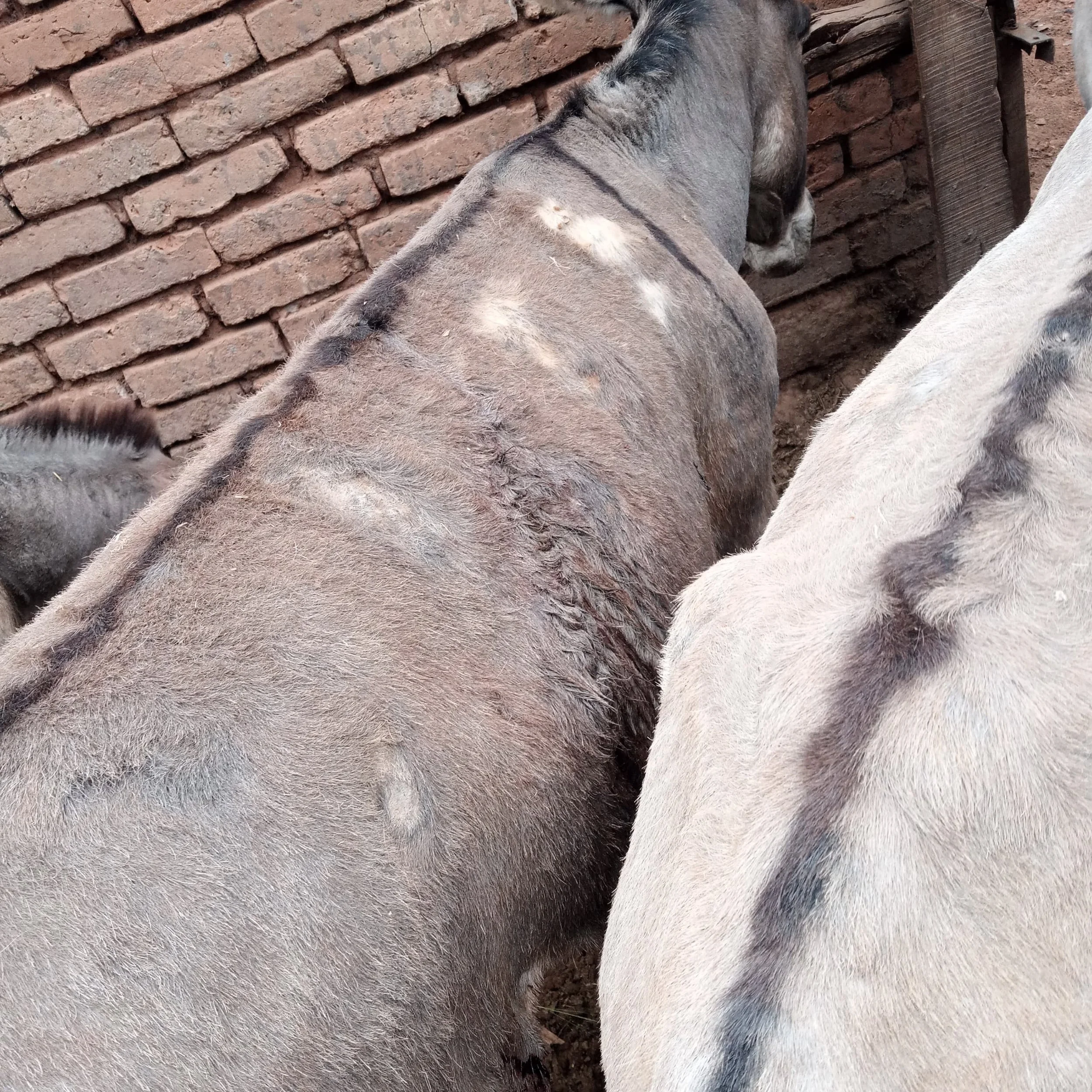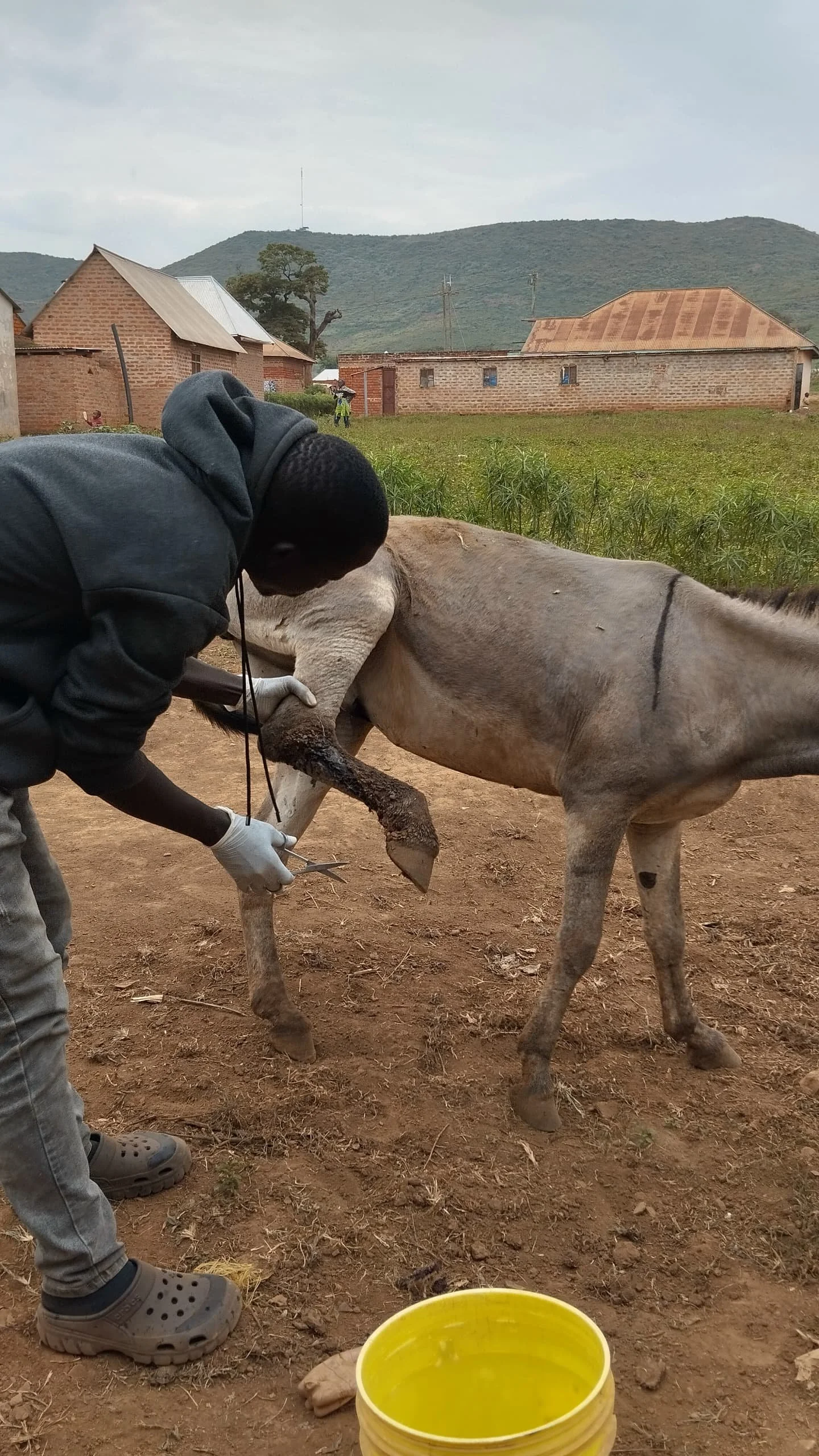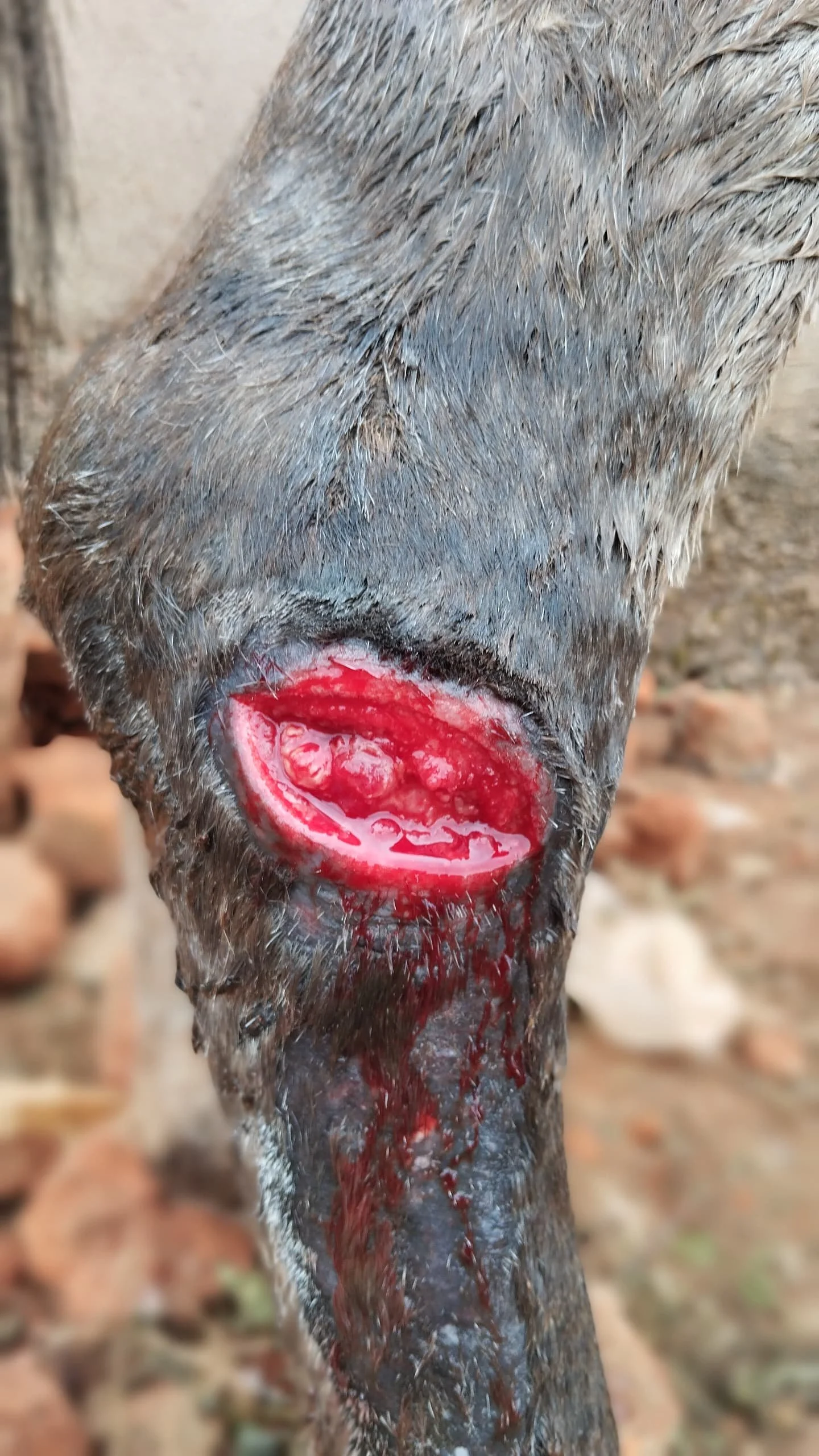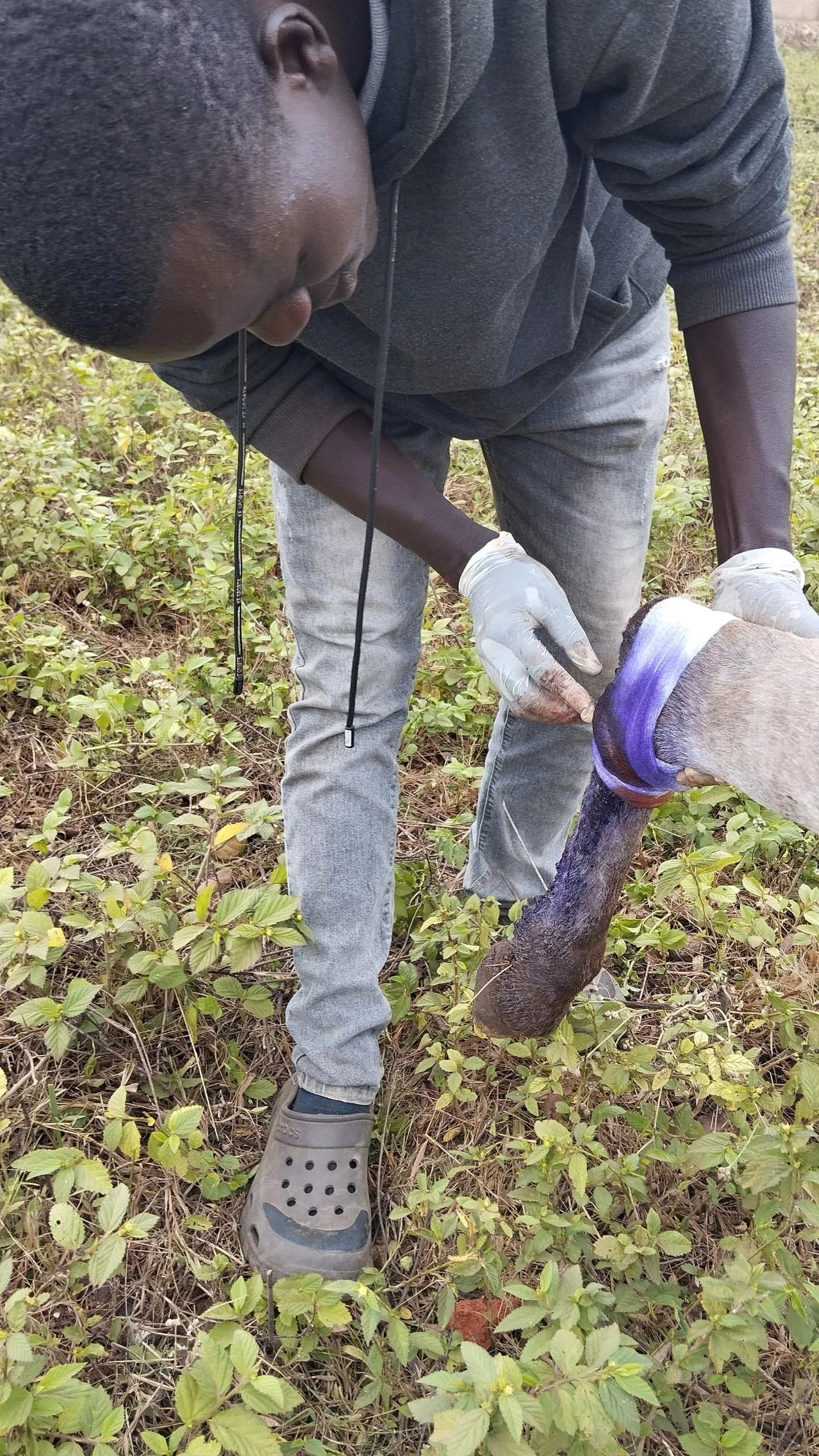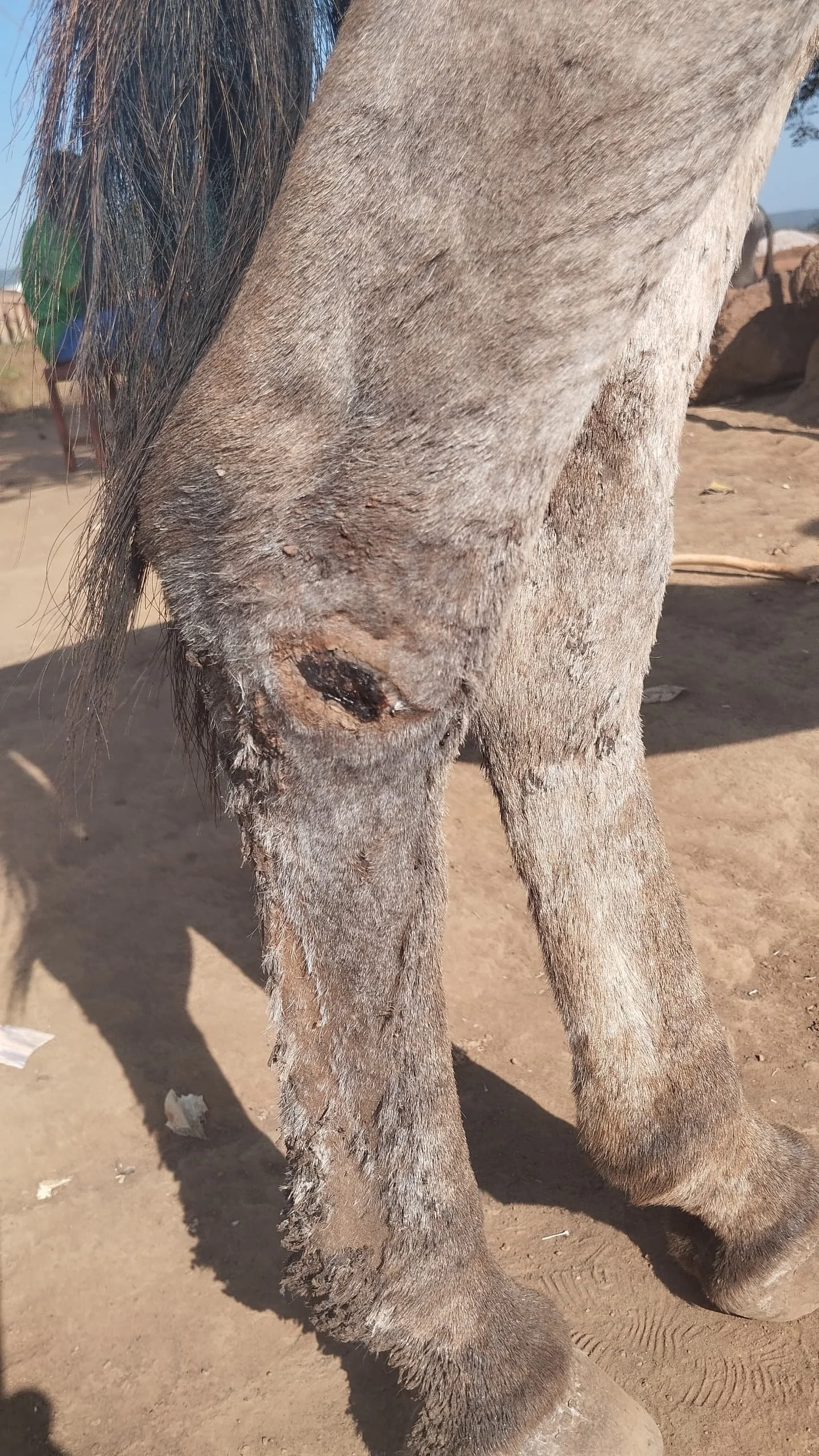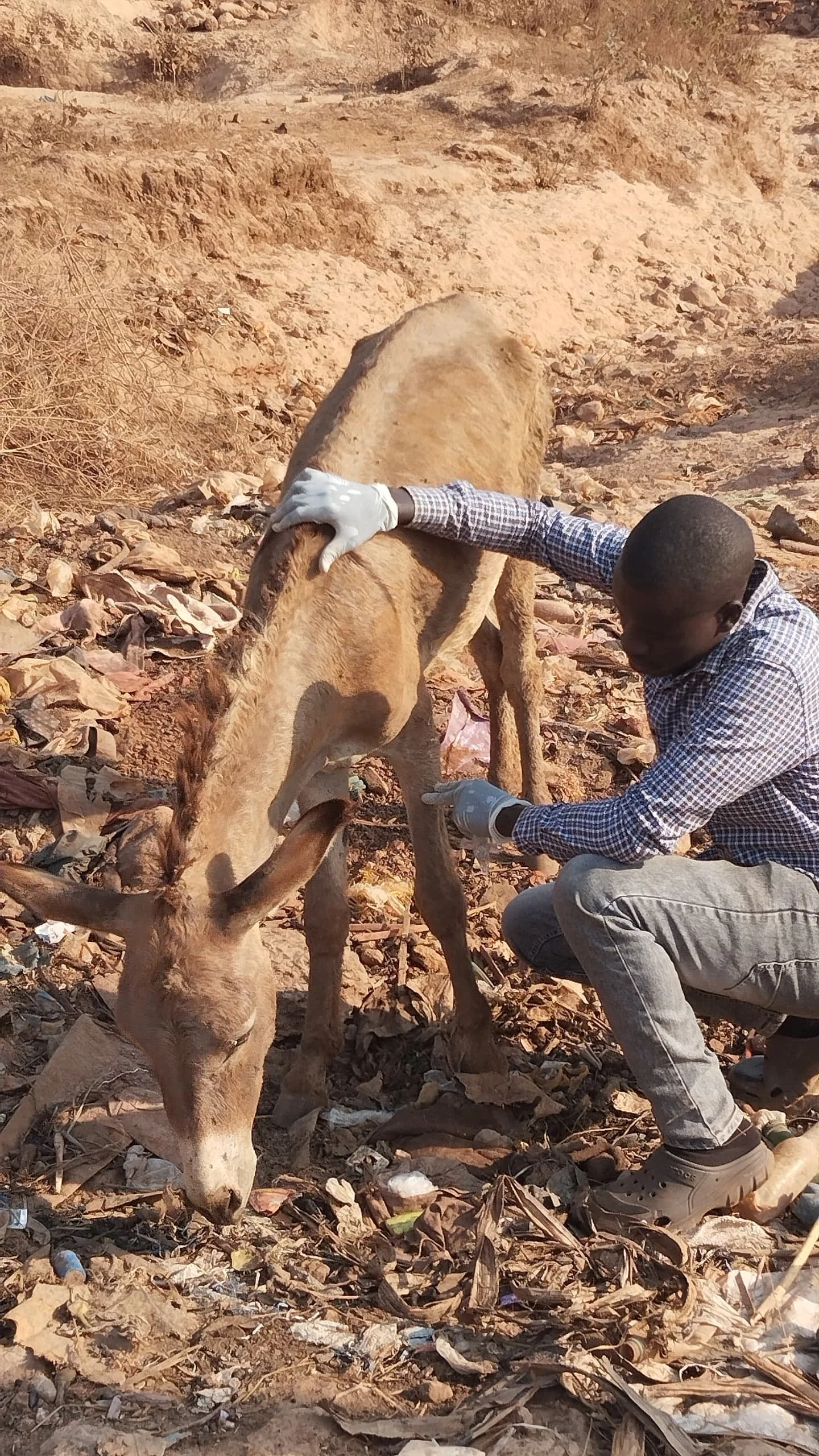Bringing Hope to Donkeys in Tanzanian Gold Mines
In Tanzanian gold mines, donkeys face harsh conditions, brutal workdays and serious injuries. Thankfully, with help from your kind donations, Lake Zone Animal Welfare Organization (LAZAWO) have been able to relieve the suffering of these donkeys and turn pain into hope.
You can read their full report from July below:
1. Background
July has been a month marked by both triumphs and tireless efforts - a true reflection of the frontline work we do for the working donkeys in Geita’s gold mining communities. Amidst harsh terrains, painful injuries and emergency calls deep into the night, our team stood unwavering. With compassion and professionalism, we remained committed to treating, comforting, and rescuing these noble animals who give so much, yet ask for so little. Encouraging recoveries like Shimbo’s return to light work and Nemla’s progress in weight bearing, along with positive feedback from owners, served as powerful reminders of the impact of our continued presence.
2. Veterinary Activities
In July, 935 donkeys were attended to through a combination of daily field visits, telephone consultations, two monthly veterinary clinics and an emergency tetanus vaccination campaign. These efforts formed a critical part of our ongoing mobile veterinary outreach, which is dedicated to improving the health and welfare of working donkeys in Geita.
During this period, our team identified and managed a range of veterinary conditions. The most frequently encountered included wounds, mange infestations, eye infections, and equine ptyalism (excessive salivation). Other notable conditions included diarrhoea, abscesses and trypanosomiasis.
The diversity and recurrence of health challenges amongst donkeys working in the Geita gold mining areas underscores the urgent need for consistent veterinary support, improved animal husbandry practices, and ongoing owner education and awareness to ensure sustainable welfare for these hardworking animals.
3. Training
a) Training and outreach
Two field clinics and community outreach sessions were successfully conducted in Magenge and Nyaruyeye gold mining areas during July. These sessions focused on humane donkey handling, appropriate feeding practices and basic preventative health measures for working donkeys.
A key highlight of this outreach was the promotion of locally-made padded saddlebacks and donkey collars, which are instrumental in preventing saddle sores and yoke-related injuries. During the field clinics, 117 donkeys received veterinary care and welfare assessments: 76 in Magenge and 41 in Nyaruyeye.
In addition to clinical services, 71 donkey owners and handlers received targeted training on humane handling and welfare improvement. To reinforce practical application of the training, we distributed 50 padded donkey collars: 25 in Nyaruyeye and 25 in Magenge. This will ensure immediate implementation of best practices in these communities.
b) Training impact and community response
We are pleased to report positive early impacts of this initiative. Field follow-up visits have shown that donkeys equipped with the new collars and saddlebacks are showing fewer skin wounds and pressure injuries than before. Owners have expressed great appreciation for both the training and the humane materials provided. Furthermore, we are now receiving increasing requests from donkey owners who are eager to receive guidance and support in preparing locally-made saddlebacks and collars, indicating a growing level of adoption and ownership of the interventions introduced.
4. Follow-Up Cases
4.1 Nemla has gradual improvements in weight bearing
Nemla - the donkey previously diagnosed with a proximal radius fracture just below the epiphyseal region - continues to show encouraging signs of healing. As of late July, she has begun bearing weight on the affected limb, indicating positive bone consolidation and soft tissue recovery. However, the rate of recovery has been moderately delayed, primarily due to challenges in maintaining strict confinement (a critical factor in fracture management). The owner has been reminded about the importance of minimising movement and ensuring safe resting conditions to support full recovery.
4.2 Shimbo makes a full recovery and resumes light work
Shimbo - the donkey with a previously dislocated cervical vertebra - has made a full clinical recovery following rest, supportive anti-inflammatory therapy and careful handling. His owner has progressively reintroduced him to minor workload tasks, such as light carrying over short distances. No signs of pain, neurological deficits or abnormal posture have been observed during follow-up visits. Shimbo’s progress is a testament to early intervention, community awareness on safe handling and sustained monitoring.
4.3 General follow-up of clinical cases
Throughout July, our veterinary team conducted systematic follow-up visits to monitor the outcomes of all donkeys treated during recent field clinics. The follow-up strategy focused on assessing wound healing progress, reinforcing owner compliance with aftercare, evaluating responses to medical treatment (especially antibiotic and anti-inflammatory regimes) and identifying relapse or complications.
Feedback from owners was largely positive, with over 75% of treated animals showing clear improvement, and several fully recovered. This follow-up exercise reinforces the need for continued community engagement, appropriate home care, and timely veterinary visits to sustain welfare outcomes.
5. Emergency Case - Masanja’s midnight rescue in Magenge
In early July, a donkey named Masanja disappeared from her home. Her owner, Peter, searched through the paths of Magenge and found her, lying helpless and in pain on the ground, around 10pm. She had been cut by a sharp object and her intestines were hanging out. The wound was severe and signs pointed to a cruel act most likely caused by humans.
Peter called our team in distress. Using our field vehicle, we rushed to the scene without delay. Some emergencies cannot wait for daylight.
Our veterinary team conducted an emergency procedure on site. Under general anesthesia, Masanja’s wound was cleaned and disinfected, her intestines gently returned to the abdominal cavity, and her skin sutured with care and precision. Pain relief, antibiotics, and ongoing follow-up care were provided.
Over the following weeks, Masanja made a strong recovery. Although she’s still resting and hasn’t gone back to work, her life was saved and her spirit has returned.
Peter’s words were full of emotion: “You came at night when no one else could. I will never forget this.” This was thanks to Animal Aid Abroad. Your support allowed us to act quickly, save a life and bring hope to a heartbroken owner. Thank you for standing with us and with donkeys like Masanja.
6. Case Study: Tabe, the donkey who sustained a leg injury due to a gold crusher
In the heart of Mgusu, where dust and duty meet, a humble donkey named Tabe found himself entangled in tragedy. While foraging on the outskirts of a mining site, he unknowingly stepped on a jagged piece of iron, which was a broken fragment from a faulty crusher used to process soil. The wound was deep and the pain unbearable. His owner was summoned urgently the following day. What he found shattered his heart. Tabe lay helpless, unable to rise or bear weight, his right forelimb suspended in pain.
Our team responded swiftly, as always, to the silent call for help. With skilled care, we sedated Tabe to ease his distress, debrided and disinfected the wound, and dressed it with precision. Antibiotics and anti-inflammatories were given to control infection and pain.
With daily follow-up, Tabe steadily improved. The moment he stood and walked again, his owner was overwhelmed with emotion.
Thanks to your support, we turn pain into recovery and despair into hope. Tabe walks now because you cared.
7. Conclusion and Appreciation
As we reflect on the milestones reached during July, we are moved with gratitude for the life-changing support from Animal Aid Abroad. Your dedication has not only empowered our veterinarians, but has brought justice, compassion and renewed strength to the often-forgotten donkeys of Geita.
With your continued support, donkeys who once bore pain in silence are now receiving treatment, comfort and care. This journey of transformation would not be possible without your heart for animals in need. For every animal whose life has been touched, we thank you deeply.
